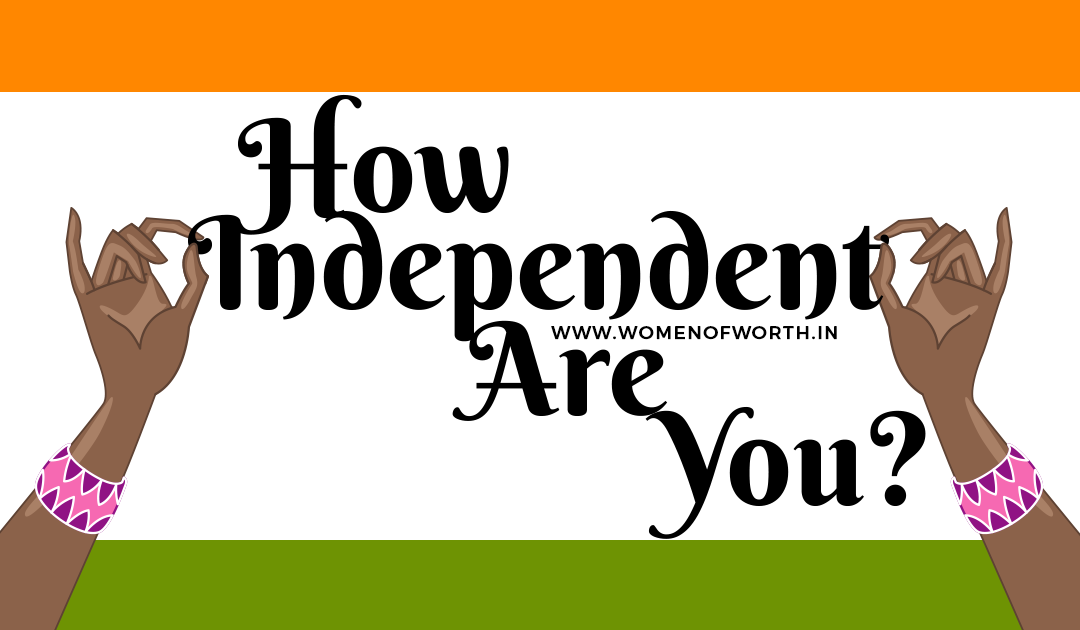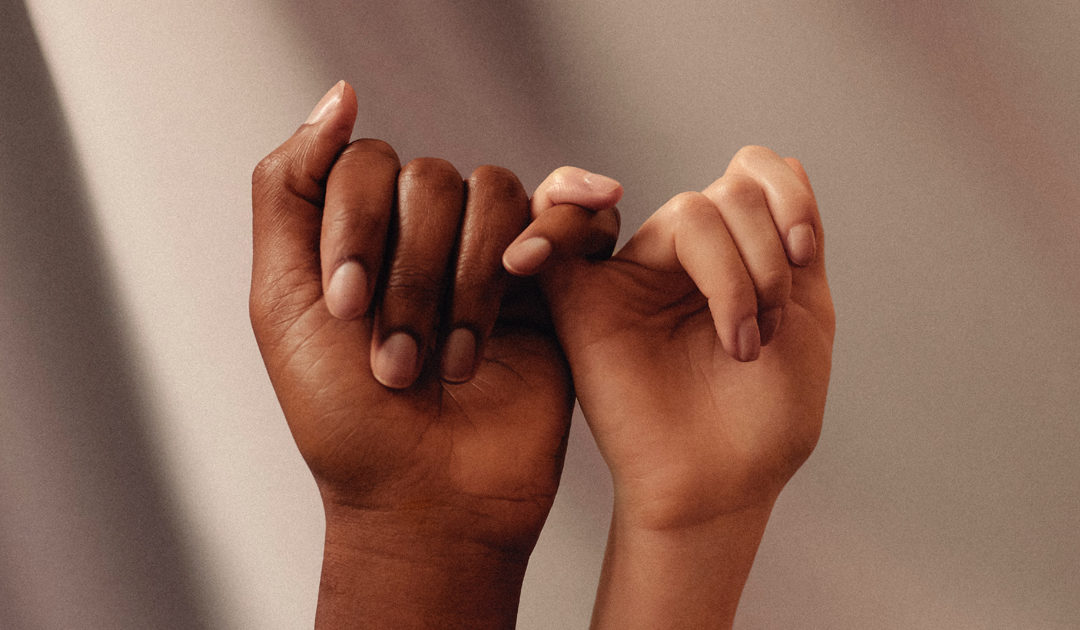
by Girl Arise | May 12, 2022 | Blog, Girl Arise
Together, we are an ocean. “Individually, we are a drop.”- Ryunosuke Satoro
An old farmer, while settling a dispute among his children, picked up a stick from the ground and said, “One stick can be broken, but a group of sticks cannot be broken.” It is the same with us, women. There is nothing stronger than a woman shouldering other women. Togetherness is the glue that can strengthen, encourage, and heal women from all walks of life.
The National Girl Me Too day is different from the #metoo movement. In the US, Symonia Montgomery, the creator of the National Girl Me Too movement, and many others celebrate the National Girl Me Too day with a vision to heal the past, empower the future and encourage relationships among women. The phrase, “Girl, me too,” is used when women mutually relate to each other’s experiences and challenges.
If you told me as a young girl you struggled to accept your body, or you felt unheard among a group of men, or as a grown woman you are uncomfortable to travel at night, I would say, “Girl, me too,” to all of the above.
In India, we can celebrate the national “Girl me too” movement by recognizing the struggles of our sisters from rural India. I heard someone say, “rural India and urban India are almost like two different countries.” I couldn’t agree more. The struggles overcome by an urban woman are the present struggles of a rural woman. For example, access to higher education or toilets inside the home. This year, let us try to learn about their struggles, come up with positive solutions, and encourage discussions about issues faced by rural women. Secondly, we must uplift and not step on someone’s shoulders. The concept of pulling another down to win a race for success benefits only for a short term. Along the way, someone with the same mentality will pull you down, thus the cycle continues.
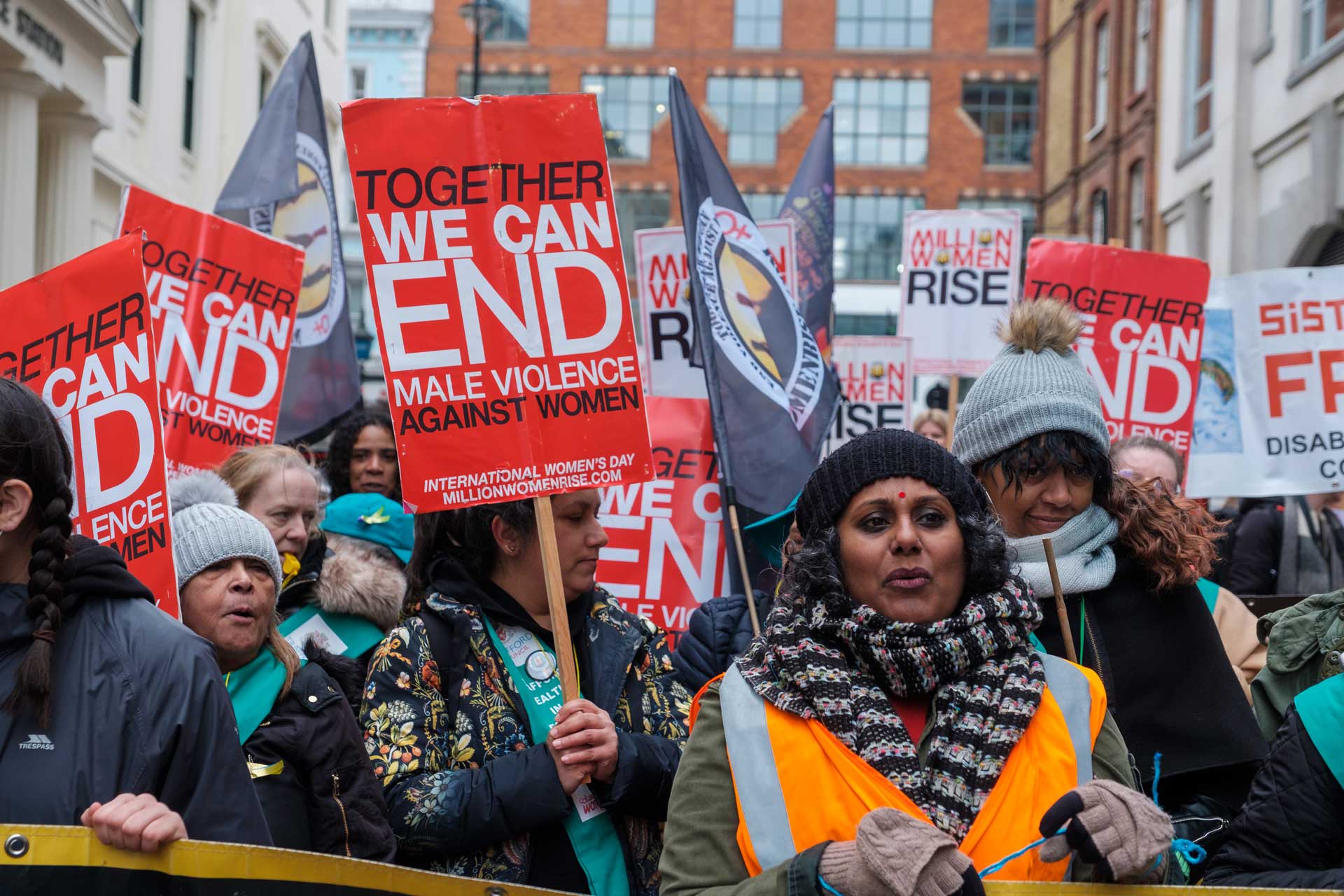
Gone are the days where mother-in-law and daughter-in-law banters were laughed at, the mistress controlled the maid, and female friendships meant sudden backstabs. We can change the narratives our screens portray by encouraging and cherishing relationships with our mothers, mother-in-laws, sisters, friends, female co-workers, and maids. One might ask, how would building female-centred relationships help me?
According to Forbes, “Study after study shows women who support women are more successful in business.” Build a sorority, a support system of women who can understand you, empathise with you, and give good advice. One common misconception that everyone feels is that “my struggle is my own, and nobody can understand it.” It just takes one look around to see several women who have felt, faced, and experienced the same. Women unknowingly create a safe space to express themselves freely to other women. For ages, washroom chit chats, book clubs, and tea parties created a safe space for women to freely express their challenges, opportunities, and struggles.
Rukmini Rao, was one of those women who supported other women during the emergency period in 1981 with “Saheli,” she helped women facing domestic violence with social, legal, and economic support.
The “Padwoman of India,”Maya Vishwakarma, born in rural India, talks about her own struggle to access sanitary pad later facing several complications due to the lack of awareness. Her struggle inspired her to go on a mission to change the stigma around menstruation. A unique bank, created by Chetna Sinha, loans money to rural women in a small town in Maharashtra. Chetna has provided financial aid to women by giving them flexible pay on a day-to-day basis and the freedom to pick loans that range from 15 to 5,000 rupees. Her vision is to raise female entrepreneurs from this small town and towns across India. Several women, like Rukmini, Chetna, and Maya, believed in the power of togetherness, a bond that can heal our past and empower our future.
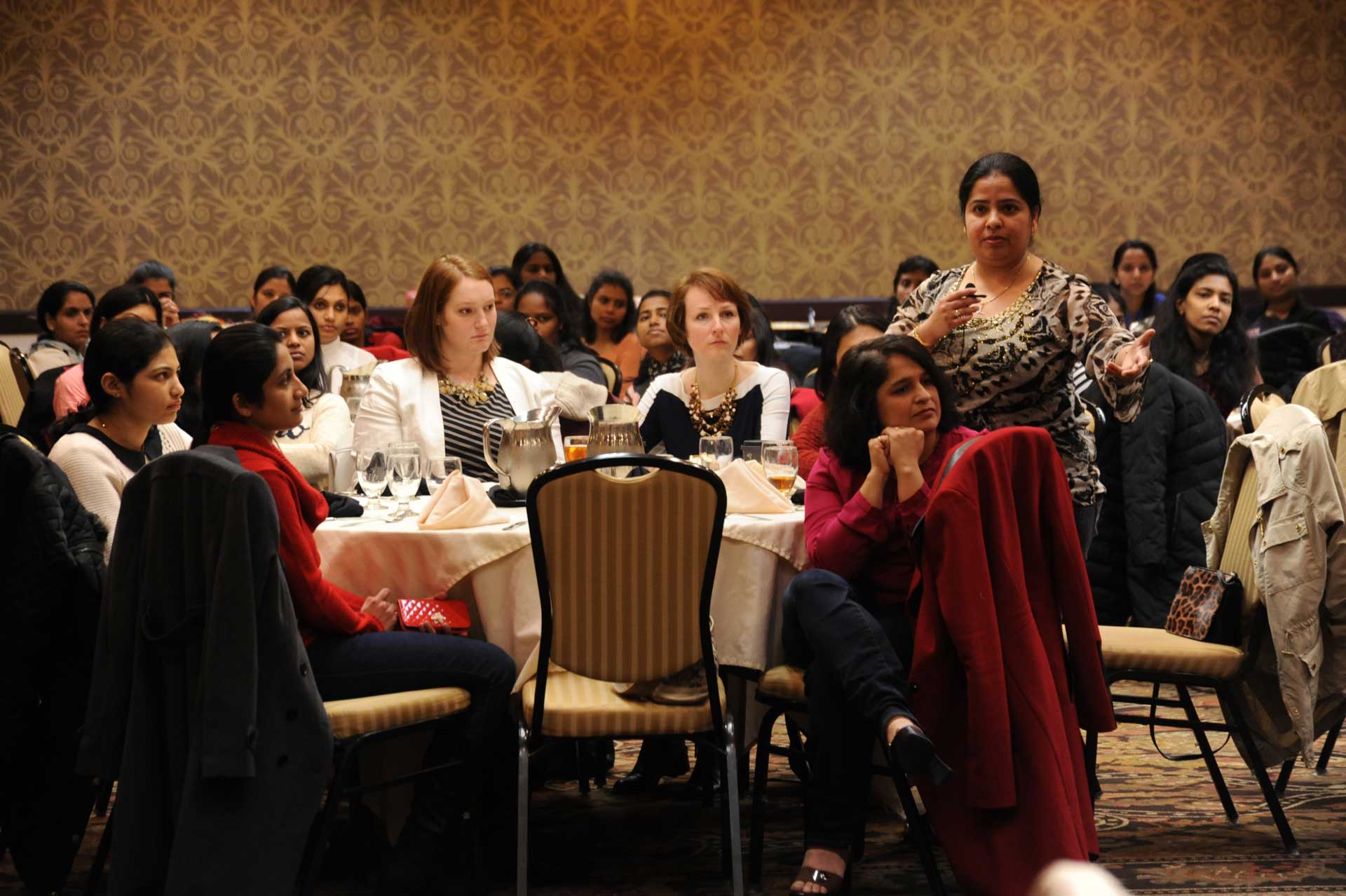
How can we celebrate Girl Me Too Day in India?
Here are a few small but creative ways you can celebrate Girl Me Too Day in India.
The girls get-to-gather
Gather your friends, co-workers, sisters, and take some time to reflect on each other’s challenges and how each one overcame them over the last year. This is a great way to learn from other women and to positively reflect on the past.
The cheesy bowl
If you’re on a tight schedule, take 20 minutes to gather your girls and play the cheesy bowl of writing unnamed positive, uplifting notes. Scatter them in a bowl. Everyone gets to pick one note and feel encouraged for the day.
Positive affirmation gifts
Nobody hates gifts, especially when they are unexpected. You could create posters, or buy mugs, that celebrate the relationship between your girl group. A printed t-shirt works its magic every time.
There is a power in togetherness, friendships, and real life stories. To quote a proverb from the book of Ecclesiastes, “It’s better to have a partner than go it alone.” Share the work, share the wealth. And if one falls down, the other helps, but if there’s no one to help, tough! ’ I say this in response to a song by Andra Day.
And we’ll rise up, we’ll rise up
Unafraid
We’ll rise up
In spite of the ache
We’ll rise up
And we’ll do it a thousand times again.
—
This blog was contributed by our intern Ruth Anugraha, a II MA Communication student from Chennai. Inspired by our work in fighting colourism, and creating awareness on child abuse, online literacy and mental health, Ruth has chosen to work with us and add value wherever she can.
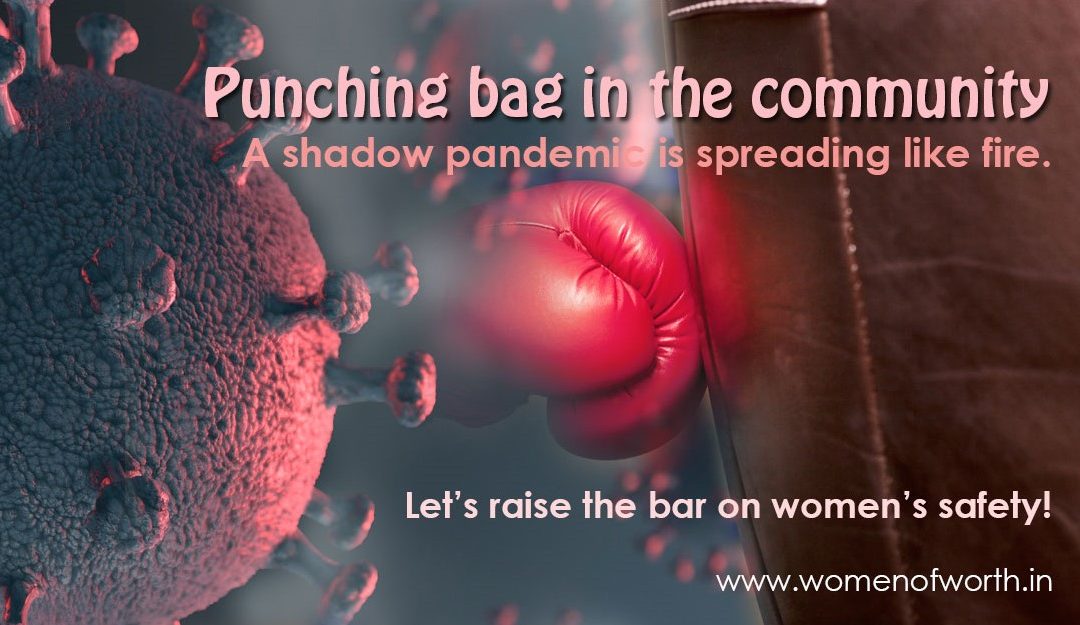
by Women Of Worth | Jun 9, 2020 | Blog, Fearless Project, Girl Arise
When we all first started hearing about COVID-19 we assumed that it would not be ‘our’ problem. It was ‘their’ problem. The reality hit the country at the end of March, with the lockdown in place. While some of us were thinking of ‘being safe’ in the comfort of our homes there was a segment of society that didn’t know what safety meant. They didn’t know how to get the next meal for themselves. In the middle of a busy city like Kolkata with millions of people, in the north lies a community of about 44,000 people who are daily wage labourers, domestic help, rickshaw pullers and garbage cleaners. They are the people who make our lives comfortable.
WHO ARE THE PUNCHING BAGS?
With the people of the community losing their income and their future looking bleak, there was an increase in frustration, hopelessness and anxiety among the people. One of the biggest issues in our nation is the fact that only some of us have access to the legal remedial and to justice. There are millions of people in our country who are far away from receiving access to justice or even legal help.
It was during this time that the WoW team in Kolkata was able to connect with some of the city authorities. The team assured them that they were available to stand by the authorities to help during the time of crisis.
Very quickly this community was introduced to the WoW team. The team was told that it would be a difficult place to work at and would be uncomfortable. We were ready for the challenge.
When we first walked into the community it was indeed something words couldn’t have prepared us for. The houses were crowded- on top of each other literally. 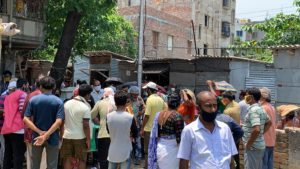 There was no sense of lockdown being executed and there were people everywhere. There was no space for social distancing in the area. There was a feeling of hopelessness and sadness in the air. We quickly befriended the political leaders in the area and worked alongside them to reach out to the women and children. We were given a little shack in the middle of the vegetable market where we could station ourselves and wait for the women who would come to buy their daily groceries to find us and speak with us. We were immediately asked to intervene in some of the cases that were happening in the community and help with the problems.
There was no sense of lockdown being executed and there were people everywhere. There was no space for social distancing in the area. There was a feeling of hopelessness and sadness in the air. We quickly befriended the political leaders in the area and worked alongside them to reach out to the women and children. We were given a little shack in the middle of the vegetable market where we could station ourselves and wait for the women who would come to buy their daily groceries to find us and speak with us. We were immediately asked to intervene in some of the cases that were happening in the community and help with the problems.
The very first intervention was for a 25- year old lady who was married for about 8 months. Her in laws wanted a dowry of Rs. 2,00,000 but the family was only able to give Rs. 1,80,000. The in laws were not happy with the amount and she was continuously raped by her husband and many times by her father in law as well. On the day we were called, there was some major issue that had happened and the in laws set her on fire. We immediately assisted in getting her transferred to the hospital, being with her late in the evening to ensure she knew there was someone for her.
She was burnt 60% and it was a long and hard few days of battling for her life. We stood with her and helped in getting the statements to law enforcement. Unfortunately, she didn’t live to see justice done.
It was not easy to see her dying right in front of us and we wished there was a different end to her story and her life. She didn’t know she could have received justice for herself since her fight was for survival.
In another instance a 19-year old girl from a Hindu family ran away from home and got married to a 22-year old boy from a Muslim family. There was a lot of tension in the home because of the different faiths. The boy’s family, specifically his mother, would often beat the girl, since she didn’t accept her being from another faith. She was three months pregnant when her mother in law took her to someone in the mosque who looked at the girl and said she was pregnant with a girl child. The mother in law wanted a boy and therefore the severity of the abuse increased. When it got out of control, she ran out of the house to look for help and lost the baby the same night. She didn’t have the security to return to her parental house because they wouldn’t accept her back. We helped in counselling her, standing with her in the hospital, seeing the still born baby and sending the baby for cremation. We were there to support her, so that she knew she wasn’t alone especially when her own family despised her. She chose to return back to her in laws and continue to stay with her husband. She had no complaints against them. She didn’t want to go to the police or resort to any legal action since her survival and security of family and home was more important than fighting for her rights and for justice. We have continued to stand with her to ensure her safety and protection.
In another case, under the influence of alcohol, a girl from the same community was being beaten up by her husband. When we reached, we saw her dripping in petroleum and had we not intervened she would have been burnt alive. We were able to remove her and repatriate her back to her house in Sunderbans. It was a 4-hour long journey to take her back home by road and then crossing over the river in a boat.
Unfortunately, she was not safe in the maternal house either. We are unsure of the details of what happened, but it’s most likely that she was beaten, abused and died a couple of days later.
We couldn’t return back to help her because of the approaching cyclone and all communication on the Bay of Bengal was interrupted. Where was her justice? Did she really need a functional system or people to just be there for her?
What was common for all of the three women was that they needed basic security. They needed to know they are more important than dowry, than the child they would give birth to and that their lives mattered. They needed people to come and stand with them, affirm their worth and teach them that they had a right to life and dignity.
About the Author: Dolphy Biswas is from Kolkata and is passionate about working for women and children who don’t have a voice to speak up for themselves. For the past few years, as a community worker , Manager, and trainer with Women of Worth, she is involved in addressing the needs of women and adolescent girls in crisis situations. The COVID-19 pandemic became a season of torture for many of these women and girls who were already vulnerable. Dolphy has been able to do daily visits and be a source of support.
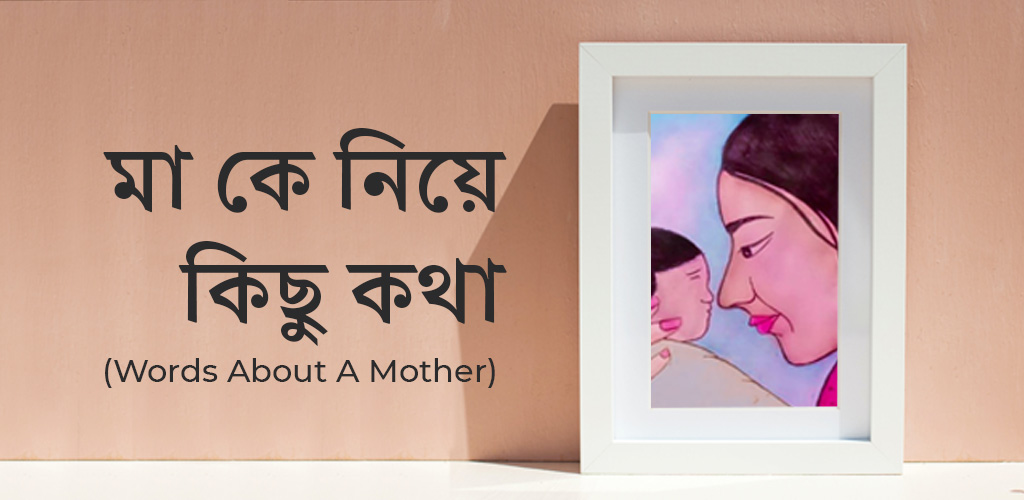


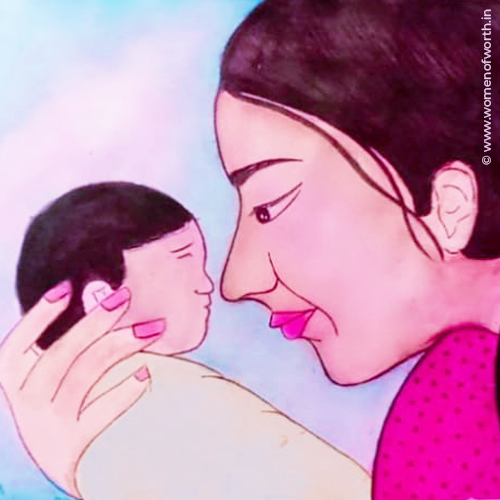





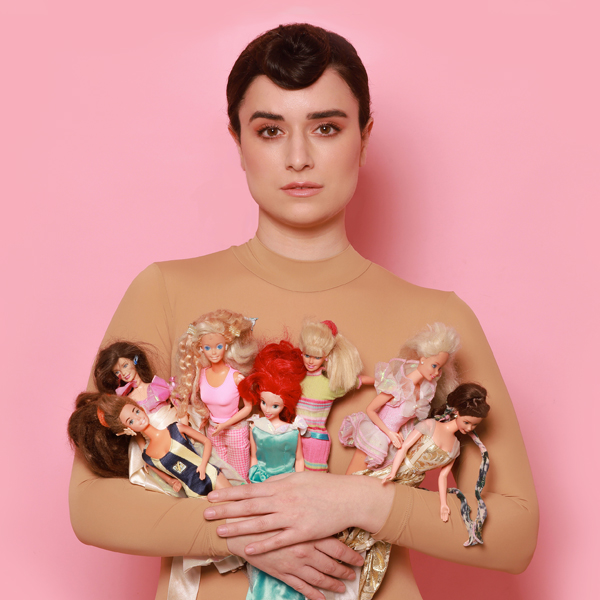 In China, another fascinating country, I have heard the same thing about the beauty standards of having whiter skin but there I have heard about another phenomenon, surgical procedures to widen their eyes to look more western (a phenomenon that also happens in South Korea). In western countries, black women straighten their (amazing curly) hair to look like other women with straight hair. This is a phenomenon that is slowly changing, but black women who don’t straighten their hair may be seen as unprofessional and might not be hired to certain jobs just because of their hair. These are just some examples of things women experience every day. We have the power to create a better environment for women of all cultures around the world. There are many inspiring women all over the world who share their body positivity and body neutrality as a way of life which is very important in the reality we create. Each of these women started from a small step. The next step starts with you – by accepting yourself and remembering that you are special.
In China, another fascinating country, I have heard the same thing about the beauty standards of having whiter skin but there I have heard about another phenomenon, surgical procedures to widen their eyes to look more western (a phenomenon that also happens in South Korea). In western countries, black women straighten their (amazing curly) hair to look like other women with straight hair. This is a phenomenon that is slowly changing, but black women who don’t straighten their hair may be seen as unprofessional and might not be hired to certain jobs just because of their hair. These are just some examples of things women experience every day. We have the power to create a better environment for women of all cultures around the world. There are many inspiring women all over the world who share their body positivity and body neutrality as a way of life which is very important in the reality we create. Each of these women started from a small step. The next step starts with you – by accepting yourself and remembering that you are special. 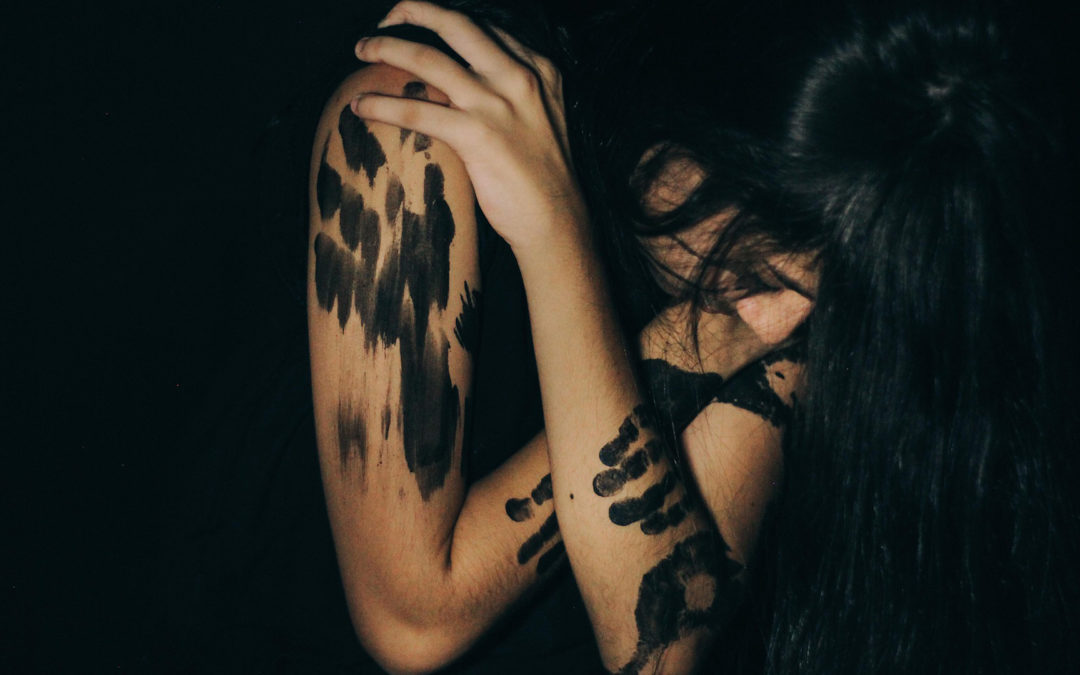
 When the team went to a quiet 11 year old sitting on a bed, visibly abused and tortured by a middle aged man, she resisted even a gentle loving gesture to help her out of the room. She started screaming and crying.
When the team went to a quiet 11 year old sitting on a bed, visibly abused and tortured by a middle aged man, she resisted even a gentle loving gesture to help her out of the room. She started screaming and crying.  Two days after our rescue operation, this entire red light area was shut down by the District Magistrate. Every single brothel, every single shop was sealed and the entire area was shut off and all commercial sex workers were removed from the area.
Two days after our rescue operation, this entire red light area was shut down by the District Magistrate. Every single brothel, every single shop was sealed and the entire area was shut off and all commercial sex workers were removed from the area. 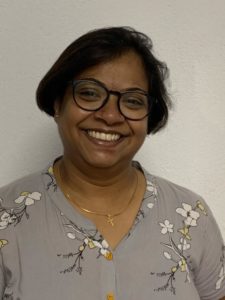

 There was no sense of lockdown being executed and there were people everywhere. There was no space for social distancing in the area. There was a feeling of hopelessness and sadness in the air. We quickly befriended the political leaders in the area and worked alongside them to reach out to the women and children. We were given a little shack in the middle of the vegetable market where we could station ourselves and wait for the women who would come to buy their daily groceries to find us and speak with us. We were immediately asked to intervene in some of the cases that were happening in the community and help with the problems.
There was no sense of lockdown being executed and there were people everywhere. There was no space for social distancing in the area. There was a feeling of hopelessness and sadness in the air. We quickly befriended the political leaders in the area and worked alongside them to reach out to the women and children. We were given a little shack in the middle of the vegetable market where we could station ourselves and wait for the women who would come to buy their daily groceries to find us and speak with us. We were immediately asked to intervene in some of the cases that were happening in the community and help with the problems.
